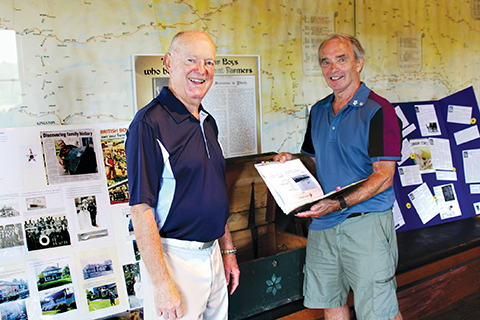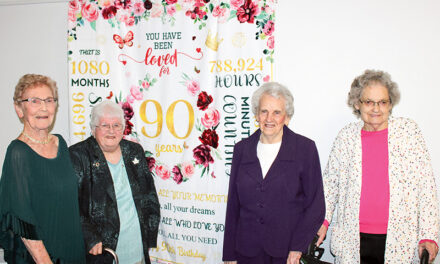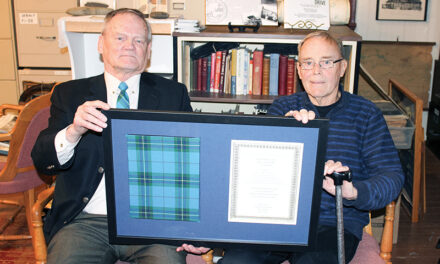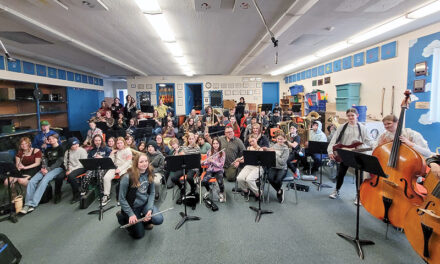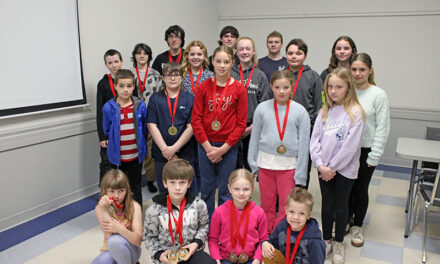From the left: Dave Alguire is shown some of the information Ron has been able to collect on his BHC father Edwin Baker, in front of Edwin’s BHC trunk. Ron explained he was assisted in his search for information by Pauline Bampton who is associated with Gibb’s Home in Sherbrooke, Quebec, the receiving home where Edwin stayed during the early days of his arrival in Canada. Thompson Goddard Photo
MORRISBURG – As part of Doors Open Ontario, the Ontario East British Home Child Family (OEBHCF) opened the doors of the Judy Neville British Home Child (JNBHC) Museum in the Aultsville Station near the Crysler Marina east of Morrisburg. The JNBHC Museum is staffed by volunteers, mainly members of the OEBHCF, who tell visitors the story of the BHC in Canada and explain many of the artifacts on display.
British Home Children (BHC) were youngsters, generally between five and 16 years, who were sent to Canada to work as indentured servants in the houses and on the farms in this country between the late 1860s and early 1930s. These impoverished children were victims of societal changes due to the industrial revolution in Great Britain, often living on the city streets of Victorian England before being rescued by philanthropic organizations resulting in over 120,000 children being sent to this country.
Judy Neville, who founded the OEBHCF in 2011 and often served as its president, brought the idea of showcasing the stories of the British Home Children in a museum setting at the Aultsville Station to the organization. After receiving the support of the OEBHCF, Judy collaborated with the Parks of the St. Lawrence to make the museum a reality, dedicated to telling the often-untold stories of the British Home Children.
On Sun., Aug. 21, Ron Baker of Cornwall and his wife Maureen were volunteering as museum guides at the JNBHCM. Ron’s father Edwin M. Baker was a British Home Child who came to Canada under the auspices of the Waifs and Strays Society of the Church of England. Ron mentioned he had only learned of his father coming to Canada as a child emigrant after he died, explaining BHC often chose not to speak of their early lives, usually due to a stigma associated with being a BHC. Ron’s family believed their father had been born in Boston Massachusetts, not Boston in Lincolnshire, England, with a torn envelope addressed to his dad, being discovered after Edwin’s death, leading to the discovery of him being a British Home Child. Since the 2008 discovery, Ron has spent years researching his father’s story, sharing it with family members, as well as speaking to students at both elementary and secondary schools.
The artifacts and displays at the JNBHC Museum are designed to tell the stories of the BHC, who like Ron’s father, never disclosed their British origins. Ron and other OEBHCF members will often visit schools and other events to shed some light on this little-known part of Canadian history. The museum is open between 11 a.m. and 4 p.m. on Saturdays and Sundays until Sept. 25.
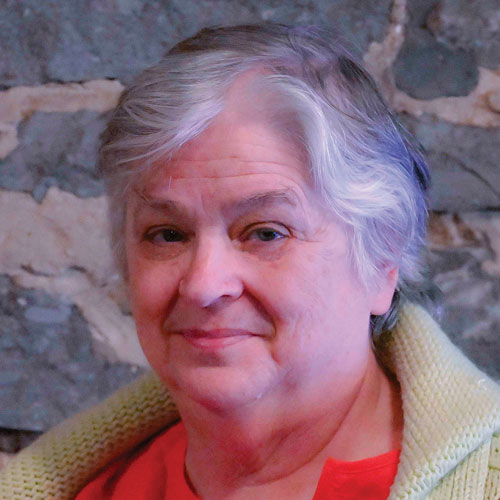
Carolyn Thompson Goddard, grew up in Chesterville and attended North Dundas District High School. After completing her BA in Political Science at Carleton University she has worked as a medical secretary and library technician. In 2020 she graduated from Algonquin College with a diploma in Journalism and has been a reporter and column writer for The Chesterville Record for over 10 years.

